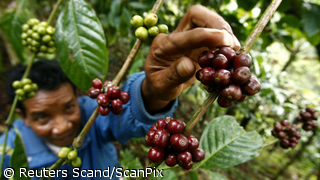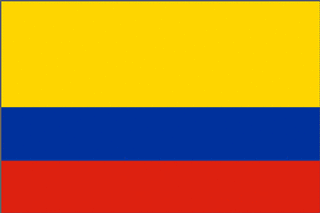The Russian Gas monopoly Gazprom intends to take action in order to force The Ukraine to pay for gas and stop the country from exporting it to Europe.
Published:
7 July 2000 y., Friday
Russian deputy Prime Minister Viktor Khristenko has reported that gas deals between the two CIS members are to be radically revised and a new payment procedure is to be introduced soon. By October 1st this year, the Russian government will have prepared a set of documents regulating gas transactions between the two states. Judging from the published excerpts from those documents, Russia will no longer tolerate The Ukraine’s non-payment and gas theft.
Firstly, to stop gas deliveries through The Ukraine would mean loosing lucrative contracts with Germany. Secondly, Kiev has cunningly managed to use Gazprom’s and the Russian authorities’ interests to suit its own ends, by promising the Kremlin that The Ukraine could delay its bid to enter NATO. The Russian authorities willingly bought these promises.
Politics aside, there were also economic reasons for Russia’s lenience towards The Ukraine. Gazprom has always acted as a private legal entity, although the Russian government holds a 41% stake in the gas giant. However, Gazprom continuously delayed tax payments, omitted dividends, and state representatives were given a disproportionately low share of the seats on Gazprom’s board of directors.
The government therefore did not take great pains to defend Gazprom’s interests.
Russia also insists that The Ukraine should stop illicit gas deliveries to Europe. The problem is that The Ukraine purchases Russian gas on favorable terms, regularly delays payments to Gazprom and then resells gas at high European prices, thus disrupting the stability of European gas supplies.
Šaltinis:
Internet
Copying, publishing, announcing any information from the News.lt portal without written permission of News.lt editorial office is prohibited.
The most popular articles
 Commission sets out first finance proposals for Copenhagen pact on climate change.
more »
Commission sets out first finance proposals for Copenhagen pact on climate change.
more »
 The World Bank today approved a US$39.5 million loan for the Rio de Janeiro Sustainable Rural Development Project in southeastern Brazil.
more »
The World Bank today approved a US$39.5 million loan for the Rio de Janeiro Sustainable Rural Development Project in southeastern Brazil.
more »
 The World Bank Board of Executive Directors approved today an additional US$7.8 million for the Colombia Peace and Development Project.
more »
The World Bank Board of Executive Directors approved today an additional US$7.8 million for the Colombia Peace and Development Project.
more »
 In 2008, the total number of non-cash payments, using all types of instruments, increased by 5% to 78 billion in the EU.
more »
In 2008, the total number of non-cash payments, using all types of instruments, increased by 5% to 78 billion in the EU.
more »
 Current economic indicators seem to show a cautious recovery in some of the biggest European economies, such as Germany and France.
more »
Current economic indicators seem to show a cautious recovery in some of the biggest European economies, such as Germany and France.
more »
 Launch Early Operation Phase (LEOP) has been successfully completed and the Palapa-D communications satellite is now in the nominal geostationary orbit (GEO).
more »
Launch Early Operation Phase (LEOP) has been successfully completed and the Palapa-D communications satellite is now in the nominal geostationary orbit (GEO).
more »
 The Supervisory Council of AB DnB NORD Bankas on 8 September 2009 elected Šarūnas Nedzinskas as a member of the bank‘s Management Board.
more »
The Supervisory Council of AB DnB NORD Bankas on 8 September 2009 elected Šarūnas Nedzinskas as a member of the bank‘s Management Board.
more »
 In the last few months farmers across Europe have taken their tractors to the streets to protest at what is being termed the biggest milk crisis for decades.
more »
In the last few months farmers across Europe have taken their tractors to the streets to protest at what is being termed the biggest milk crisis for decades.
more »
 Mobile telecoms companies have pledged to support the EU’s campaign to equip new cars with a device that would automatically call for help in the event of an accident.
more »
Mobile telecoms companies have pledged to support the EU’s campaign to equip new cars with a device that would automatically call for help in the event of an accident.
more »
 Nordic and Baltic countries aim to strengthen cooperation of business and industry stakeholders.
more »
Nordic and Baltic countries aim to strengthen cooperation of business and industry stakeholders.
more »